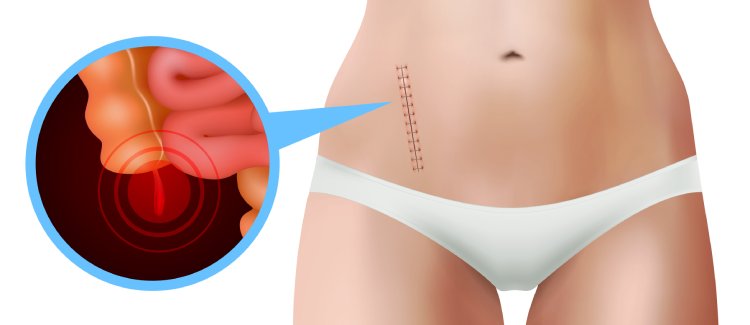Appendicitis is a painful condition when the appendix gets inflamed because of the pus that gets filled inside it. The pain generally begins with cramps in the upper abdomen area and can become chronic to life-threatening. At times, the patient may also experience pain in the lower part of the abdomen region.
An appendix is a 4-inches long pouch of storage for the good bacteria that supports the body’s fight against infection, but it is still not clear what exact function the appendix does.
Dr Amita Jain says appendicitis is one of the most unpleasant conditions as the bacteria spill up inside the tube, causing the appendix to get filled with bacterial pus and turn red and swollen. Small pieces of faeces mostly get hardened in the small intestine and can mostly drive appendicitis development.
Symptoms
Surgeon for appendicitis Dr Amita Jain says pain is not the most usual symptom, various other symptoms are repeatedly felt by appendicitis patients. When a patient’s appendix gets swelled, the person is expected to experience some of the following symptoms, such as:
- Nausea
- Vomiting
- Mild to chronic pain in the lower right abdomen area
- Pain near the naval area
- Mild fever
- Digestion issues
- Gastric problems and difficulty in passing out the gas
- Diarrhoea
- Difficulty in passing stool
You may at times also experience problems in breathing, coughing, irritability and fussiness. If you experience any of those symptoms mentioned above, then you may consider visiting Delhi’s leading laparoscopic surgeon for appendicitis Dr Amita Jain, and consult with her and seek her expertise.

Causes
Usually, it is an inflammation of the appendix that creates intense pain or fever. In kids, appendicitis might lead to severe pneumonia. Symptoms include vomiting, pain in the upper abdominal region, fever, and general discomfort. If a virus causes the infection, the symptoms may get even worse-not just by the pain but also by the fever’s duration. The medical community believes that fungal agents most often create appendicitis.
These fungal agents are usually known as C. Botulinum, C. Difficile, or C. tularensis. An infection happens when your body sends white blood cells to counter the fungus instead of the invading viruses. When the white blood cells contact the fungi, they attack them and eventually, result in serious illness.
Causes of appendicitis new-borns
A burst appendix is one of the major common reasons for appendicitis conditions in kids. Usually, it happens because a baby is born prematurely, due to which, the baby and appendix never form properly. The outcome is that the appendix might rupture, causing intense inflammation and pain.
Possible complications
Dr Amita Jain cites several cases that are mild and do not threaten your health. However, certain rare cases may lead to more complicated health issues. Two, possible complications are infection and death. A burst cyst or perforation can create an infection. Suppose one has a history of STD.
In that case, one is at risk of forming an infection if you have had a consummation with a person who had an active infection. If you have a perforation, the bacteria may enter into your bloodstream, possibly causing sepsis, a life-threatening blood infection. Since the ruptured appendix is the entrance point for bacteria, one may have a bacteria or virus that became trapped in the large intestine, leading to this condition. Diabetes, obesity, prolonged bed rest, HIV and drug use are common factors of this disease.
Diet and remedies
Having fruits and vegetables could reduce inflammation and prevent the appendicitis problem. Consuming oats, brown rice, lentils, legumes, beans and whole-grain foods are some of the things you should include in your daily diet. Your body must get a lot of rest, and stretching exercises along with walking or jogging are advised to keep appendicitis at a bay. These are some of the remedies that you need to follow along with your medications and prescriptions and must not only rely on them.
Treatment
In the majority of cases, the treatment of appendicitis requires surgery of the appendix. Minimally invasive surgery is done through laparoscopy to remove the inflamed appendix. Medications are provided along with conducting the pus-filled drainage inside the appendix if the abscess has not been ruptured.
It is advised and vital to consult a doctor who will correctly guide you to take what medications and surgery options accelerate your procedure of treatment for appendicitis. Dr Amita Jain is one of the senior-most surgeons in Delhi at Artemis Hospital and is well-equipped with the latest technology, and expertise to treat you in case you are suffering from appendicitis.